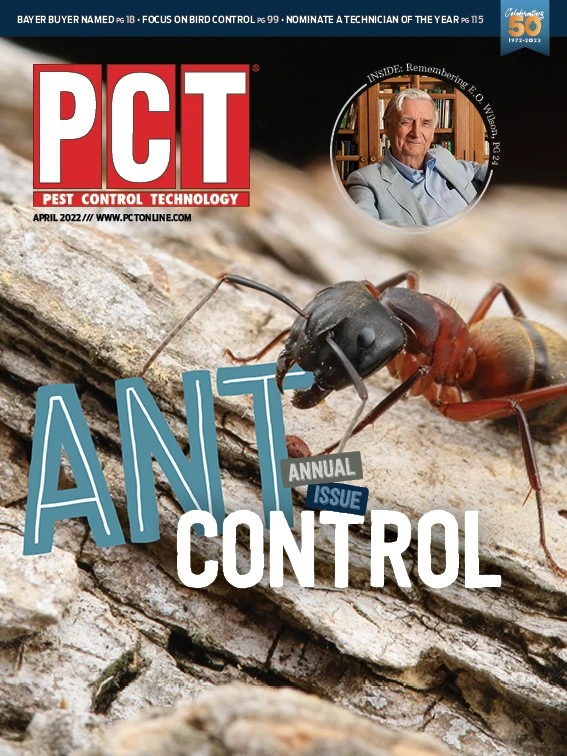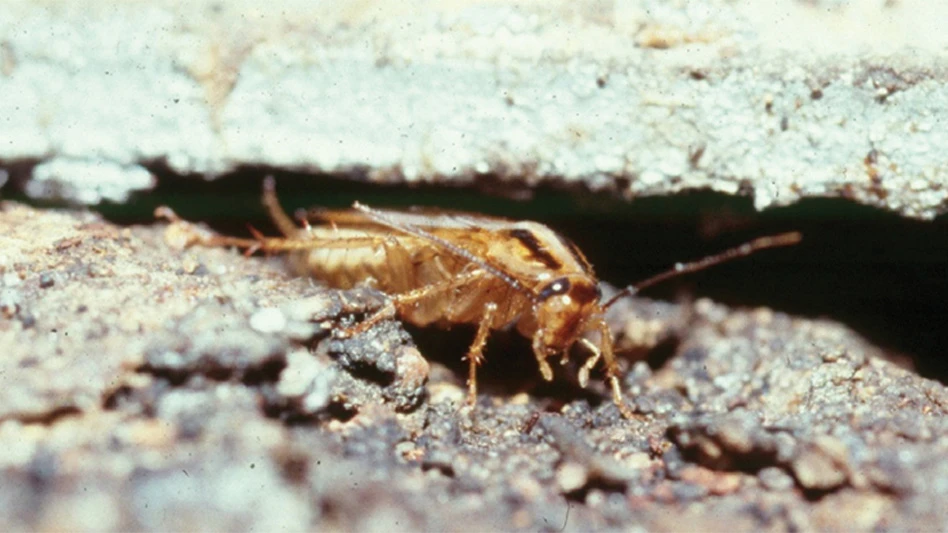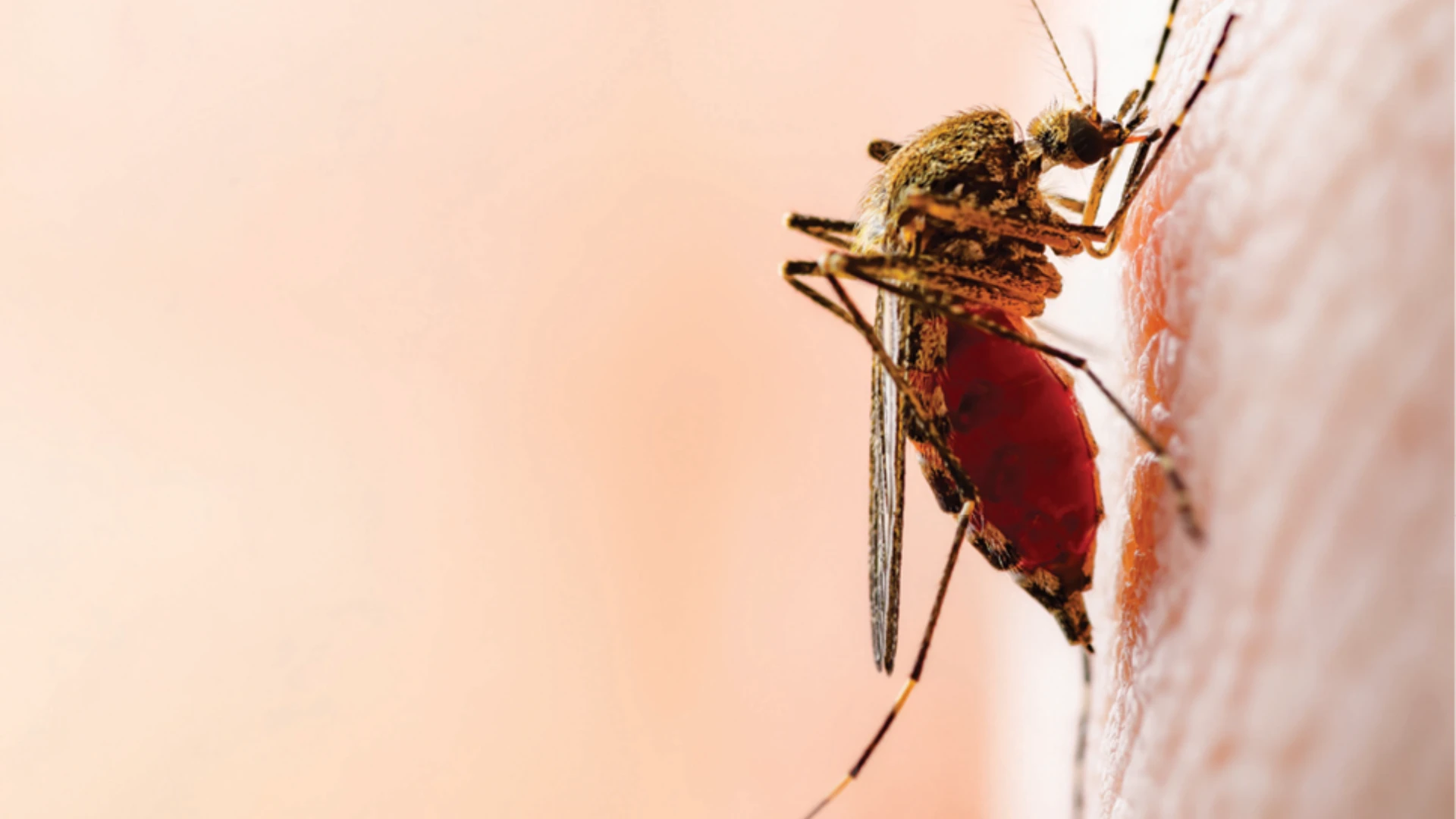
CLEVELAND, Ohio — According to the American Automobile Association (AAA), on March 3 the national average for a gallon of gasoline was $4.17, a record high that broke the previous record of $4.11 a gallon, which had stood since July 2008. At press time, gas prices were still above $4 per gallon nationally.
The culprit has been the surge in global crude prices, a result of Russia’s invasion of Ukraine.Pain at the pump is even more acute for owners of route-based businesses such as pest control companies. PCT caught up with several pest control operators (PCOs) from various parts of the country to find out how they have been impacted and how they are adapting.
TO SURCHARGE OR NOT? Anytime gas prices dramatically spike, the great debate among PCOs ignites about whether or not to add a fuel surcharge to their customers’ bills.
Bill Cowley, co-owner of Cowley’s Pest Control, Farmingdale, N.J., said his company has never added a fuel charge in 31 years in business, “but all options are on the table at this time.”
On March 7, PCT asked its LinkedIn followers, “In light of rising gas prices, are you considering adding a fuel surcharge to your customers’ bills?” and 64 percent answered “no,” while 36 percent said “yes.”
In California, which traditionally has some of the nation’s highest gas prices, Jim Harmon, owner of California Pest Management in La Verne, said, “We have been prepared for the increase in fuel costs with a small surcharge during these times when gas is up around $7 a gallon.”
Adding a surcharge increases your profit and recovers some of the cost of fuel; however, by doing so, PCOs risk upsetting their customers.
“Customers get irate when they see that line item,” said Carrie Campbell, owner of Hatfield Pest Control, LaPorte, Ind. “We did it in the past, and it just did not work for us. It especially upset our [elderly customers].”
One of the problems with surcharges, PCOs cited, is that customers don’t understand that a surcharge will be removed or reduced when gas prices go down. If you do add a surcharge, it’s important to send out a letter or email to customers explaining the charge, PCOs said.
Most of the PCOs contacted by PCT answered like Glenn Matthews III, owner of Modern Exterminating, Columbia, S.C., when asked about what action they take in lieu of a surcharge. “Raise prices across the board,” he said.
RE-EXAMINE OPERATIONS. In addition to adding (or contemplating adding) a fuel surcharge, the spike in gas prices has caused PCOs to re-examine their operations in several key areas.
Campbell said her company immediately saw the cost-savings benefits of using routing software, and “we’re looking at it closer again. We’re not sending our guys from one community to the next. Let’s get all our work done in one community and then move on so that we are not backtracking and wasting fuel.”
Cowley said his company learned the lesson about smart routing years ago, and “we have been routing as if there [has been] a gas shortage for over 20 years. We have a full-time routing manager that reviews all of our routes daily/hourly focused on eliminating windshield time.”
DRIVER BEHAVIOR. One thing all of the PCOs we spoke with agreed on was the need to reinforce safe, smart driving habits.
“Each month our managers have a KPI (key performance indicator) meeting with each tech. Driving safety and behavior are part of the KPIs,” said Doug Longfellow, president of NaturZone, Tampa, Fla.
Cowley said his company stresses safe driving through technician safety training.
“We also use driver behavior monitoring,” he said. “We run a report every week and share the results with all our techs. Speeding, accelerating too fast and idling are all driving behaviors that are gas guzzlers and safety alarms. The feedback helps us identify our aggressive drivers and retrain them accordingly. The end result is defensive driving that yields savings on gas, vehicle maintenance and insurance premiums.”
Harmon said his company’s service technicians “watch air pressures and have changed their driving habits for maximum fuel economy.” — Brad Harbison
Preemption Bill Introduced in Congress by Rep. Davis
WASHINGTON, D.C. — On March 29, Rep. Rodney Davis (R-IL) introduced in Congress a bill that would codify federal pesticide preemption as the national standard, ensuring that the Environmental Protection Agency (EPA) and the state lead agency jointly regulate pesticide usage. The National Pest Management Association (NPMA) announced its full support of the bill, which it says ensures uniform protection of the public’s health, food supply and property from pests by stating that oversight of pest control is handled jointly by the lead agency in each state and the EPA — the entities that have the technical expertise and resources to best evaluate whether a product is safe and effective. “As long-time proponents of pesticide preemption, we applaud Congressman Davis and the introduction of this bill. Preemption is critical to ensuring safe, consistent and science-based use of pest control products and is in alignment with NPMA’s overall commitment to public health,” said Ashley Amidon, vice president of public policy, NPMA.

If passed, the bill reinforces the intention of FIFRA that only the state lead agency act as a co-regulator in the state with EPA, ensuring that the highly technical work of determining how pest control products and services are used are made by those with scientific expertise. In states with preemption (currently 46), the state lead agency already works with EPA on any and all pesticide usage, sale or distribution. Alaska, Maine, Maryland and Nevada do not have a pesticide preemption law, meaning that localities in these states may regulate pesticides differently. This creates unequal protection for citizens based on their ZIP code. NPMA says it supports science-based decision making, and therefore believes that state lead agencies and EPA are the best regulators of pesticides.
Davis said, “Pesticides are already rigorously regulated at the federal and state levels to ensure safety. That’s why I’ve introduced legislation to ensure states maintain their status as the sole co-regulator with the federal government to prevent liberal cities and towns from creating a patchwork of regulations that are confusing and burdensome to users, and ultimately do not contribute to health or safety in any positive way. I look forward to working with industry advocates and my colleagues in Congress to move this bill forward as we look to the next Farm Bill.”
NPMA says that by passing pesticide preemption at the federal level, EPA and the state lead agency should be the only regulatory entities responsible for registration, sale and use of pest control products. This bill clarifies the exclusive role of state lead agencies, preventing localities from imposing a patchwork of conflicting regulatory restrictions without scientific assessment, economic analysis, consideration of the rights of property owners to control pests or responsibility of public health agencies to control disease vectors.
William Blair noted in its report that it maintains a market perform rating on shares of Terminix and said it sees upside potential of 4 percent based on the current Rentokil share price. — Jacqueline Mitchell
Antitrust Hurdle Cleared in Rentokil-Terminix Merger
LONDON and MEMPHIS, Tenn. — Rentokil Initial recently cleared a major antitrust hurdle for acquiring Terminix Global Holdings. The waiting period under the Hart-Scott-Rodino Antitrust Improvements Act of 1976 expired March 14, completing the necessary antitrust process in the United States with no divestitures required (other than the ones already stipulated in the merger agreement) and satisfying one of the principal conditions to complete the transaction.
Rentokil Initial announced on Dec. 14, 2021, that it would buy Terminix Global Holdings for $1.3 billion in cash and 643.3 million new Rentokil Initial shares in a deal that values the U.S. company at $6.7 billion.
With the antitrust process cleared, the deal risk spread has narrowed from 10 percent to 4 percent, according to a report by investment bank and financial services company William Blair, indicating that the primary factor behind the large discount to fair value acquisition price was concern over regulatory issues rather than shareholder approval.

Several other agreement conditions still need to be satisfied, including obtaining approval from Rentokil and Terminix’s shareholders for registering the company’s American depositary shares and listing it on the New York Stock Exchange. The U.S. Securities and Exchange Commission and United Kingdom Financial Conduct Authority must review and approve necessary documentation related to these conditions.
The divestment of Terminix UK and Norway operations is underway, Terminix CEO Brett Ponton, alongside Rentokil CEO Andy Ransom, said during a Stifel-hosted March 15 webcast.
“We’ve had several management meetings already in the U.K.; we got materials out in our Norway business and are expected to manage the meetings in the next couple of weeks,” said Ponton. “But we’re on plan to divest those assets in the next 45 to 60 days.”
The companies anticipate closing the transaction in third quarter 2022, Rentokil reported. However, they have amended the target end date for the merger from Sept. 13 to Dec. 31, to allow time for documentation review.
William Blair reported that in its March 14 call with Ponton and Ransom, employee retention and the company’s broader service model were discussed. Terminix employee retention has begun to improve, with turnover lower now than it was three months ago.
“Management believes efforts to increase hiring and improve training are helping address the labor gap that exists at some branches,” the report said. “Branch consolidation as a result of the Rentokil acquisition will also naturally alleviate some labor issues. Management reiterated many times the idea that employee retention is highly correlated with customer retention. As we have written about in the past, we believe the Terminix turnaround is built on improving customer retention rates. Therefore, management’s broader plan to improve employee retention is a key focus for driving industry-leading growth rates and margins for the consolidated entity.”
NCPMA Announces 2021 Award Winners, Scholarship Recipients
RALEIGH, N.C. — The North Carolina Pest Management Association (NCPMA) announced the winners of its 2021 Technician of the Year Awards and 2021 Administrative Professional of the Year Award.
Winners were announced during the opening session of the 2022 NCPMA Pest Control Technician’s School, on Jan. 25.

Tommy Sparks, Terminix Triad, Stokesdale, N.C., and James Morton, Terminix Triad, Elkin, N.C., received Technician of the Year Awards for pest management and wood-destroying insects, respectively.
Nikki Gunnell, Go-Forth Pest Control, Greensboro, N.C., received the NCPMA Administrative Professional of the Year Award.
The Education Foundation of NCPMA also announced its scholarship recipients. The foundation awarded a scholarship to Chris Hayes to assist in the continuation of his studies at North Carolina State University (NCSU). Hayes is a graduate student studying entomology with a focus on bed bugs.
The foundation awards $1,500 annually to students attending NCSU. The scholarship also was presented at the NCPMA Pest Control Technician’s School in January.
In addition, the foundation awarded Past President’s Scholarships to eight students pursuing post-secondary education programs. The scholarships were created in 2004 to help encourage and build the next generation of pest management professionals. NCPMA has awarded more than $200,000 in scholarships since 2005.
PPMA Announces Second Annual Tick Awareness Week

FAIRFAX, Va. — The Professional Pest Management Alliance (PPMA) is encouraging the pest management industry to help spread consumer awareness of the dangers of ticks during its second annual Tick Awareness Week, May 8-14.
This weeklong initiative was created to address confusion about vector pests and educate consumers on the dangers of all things tick-related to keep the public safe.
“It’s our role as pest control professionals to educate the public about the dangers associated with tickborne disease,” said Cindy Mannes, executive director, PPMA. “As tick season rolls in, we’re amplifying the engaging and educational information and visuals from our TickTalk microsite, including everything from videos on how to identify and properly remove a tick, to information on how to protect your yourself, your family, pets and property from this dangerous pest.”
During the second week of May, PPMA will launch strategic social media efforts and social media initiatives across Facebook, Pinterest, Twitter, TikTok and YouTube with content including tick facts, prevention tips and information about tickborne illnesses. Mainframe subscribers will have access to an exclusive toolkit full of marketing materials that can be used as a resource for their publicity efforts. The toolkit is available for download on the PPMA Mainframe page.
Bayer’s Environmental Science Professional Business Sold to Cinven
By Guy Cipriano and Brad Harbison
Bayer announced March 10 it entered a definitive agreement to sell its Environmental Science business for $2.6 billion to London-based private equity firm Cinven. News of the sale became public a little less than 13 months after Bayer started the process of divesting its Environmental Science business, which serves the pest control, lawn and landscape, golf, production ornamentals and vegetation management markets.
Pending proper approvals, the transaction is expected to close in the second half of this year. Bayer’s Environmental Science product portfolio and 800 employees will transfer to the company that emerges from the sale.
Gilles Galliou, CEO of Bayer Environmental Science, will lead the new business, which will have a new name. In an exclusive interview with Guy Cipriano, editor-in-chief of PCT sister publication Golf Course Industry, Galliou said “all of our solutions” will stay the same. Popular Bayer brands in the pest control industry include Premise, Maxforce, Temprid, Suspend and Tempo. Bayer also offers the Rodent Monitoring System (RMS).
“We will have a transition period with Bayer, because obviously you can’t switch one name to another,” Galliou said. “All the regulatory requirements are needed, and we need to transfer a lot of ownership to the new company. It’s our ambition to have a name that fits our innovative spirit and our sustainability thinking, so we’re working hard to find that new corporate identity.”

The regulatory process for naming the new company could take as long as two years, although Galliou said he expects the new name to be launched sooner. In the meantime, the same products will be available through the same channels. “My No. 1 goal is to make sure right out of the gate there will be no issues for our customers,” Galliou said. “Business continuity is my No. 1 goal.”
The company will be uniquely positioned because it will no longer be tied to the agriculture business. With Bayer, Environmental Science served as a division under the Crop Science unit. Environmental Science contributed more than $700 million to Bayer in 2021, according to Galliou, and numerous markets within the division are flourishing.
“We had a very strong performance year after year in 2020 over 2019, and 2021 over 2020,” Galliou said. “We see the momentum in these markets. We saw the momentum, in particular, in North America. A big part of our current business is in North America. We see the opportunity to grow. It’s the right time to focus on those markets.”
The company will be based in North America, with the Environmental Science headquarters in Cary, N.C., becoming the new company’s global headquarters. The transaction also includes the Environmental Science research facility in Clayton, N.C.
Pontus Pettersson, partner and head of industrial at Cinven, said in a press release, “As a long-established global investment firm, Cinven is well positioned to continue to drive innovation and accelerate growth at Environmental Science, including the delivery of digital and data-enabled solutions, as well as make the business more agile in responding to the unique needs of its markets and customers.”

Explore the April 2022 Issue
Check out more from this issue and find your next story to read.
Latest from Pest Control Technology
- Liphatech Adds Alex Blahnik to Technical Team
- Do the Right Sting: Stinging Insect Identification, Management, and Safety
- VAGA's 8th Annual Veterans Thanksgiving Appreciation Dinner
- Clark's Blair Smith on the Response to Increased Dengue Fever Cases in Southern California
- WSDA, USDA Announce Eradication of Northern Giant Hornet from U.S.
- Ned’s Home Acquires Ultra Safe Pest Management
- Bed Bugs & Dirty Clothes
- Boston Adopts Liphatech's IGI CO₂ Technology for Rodent Abatement





